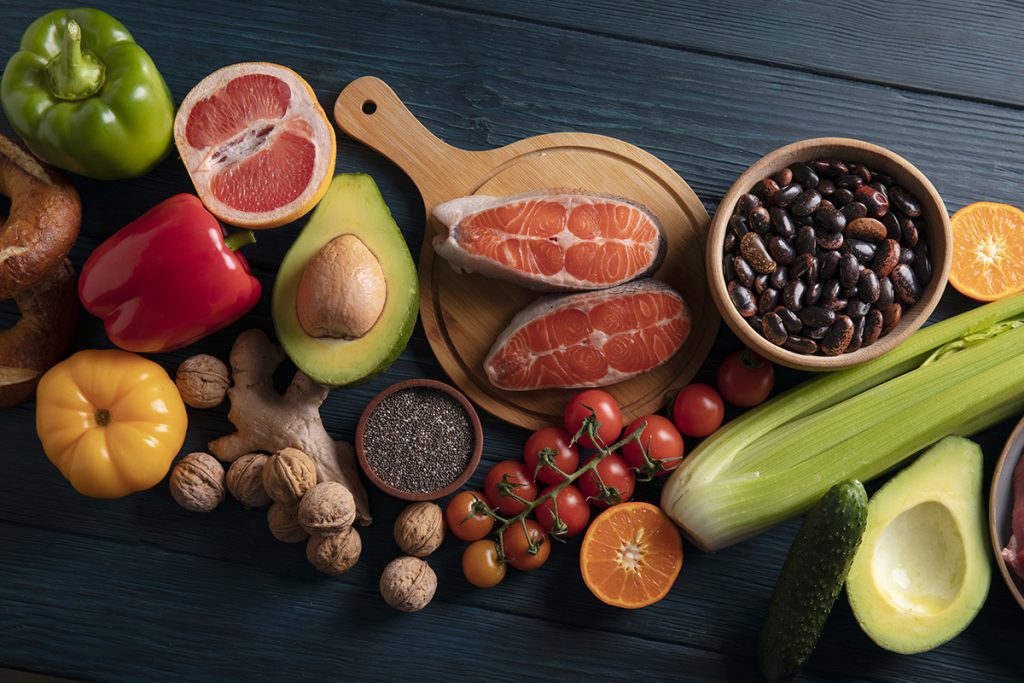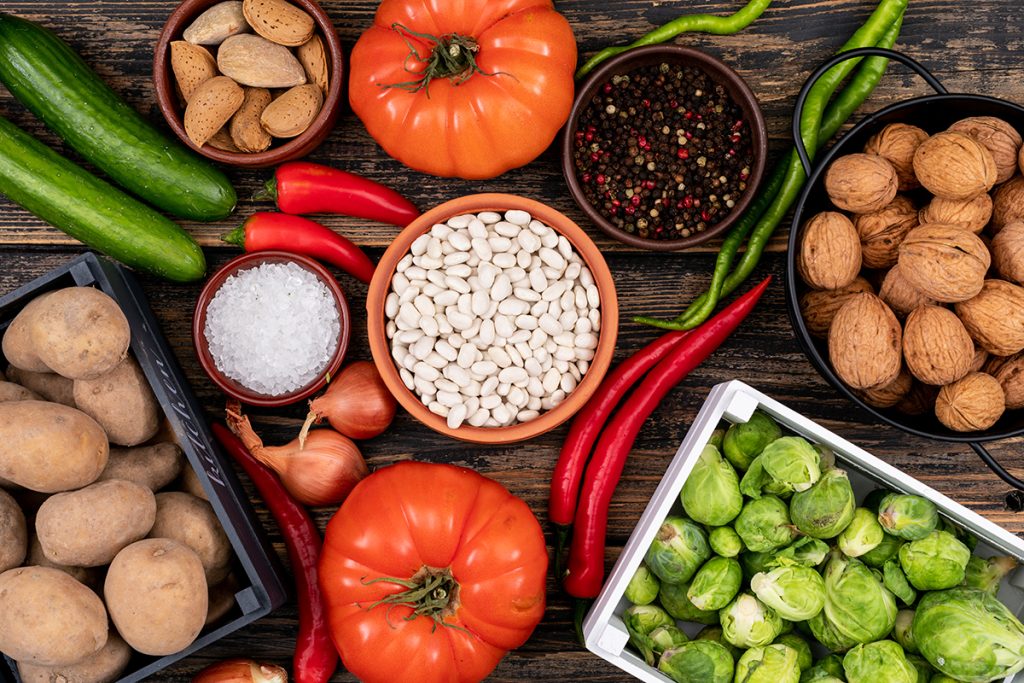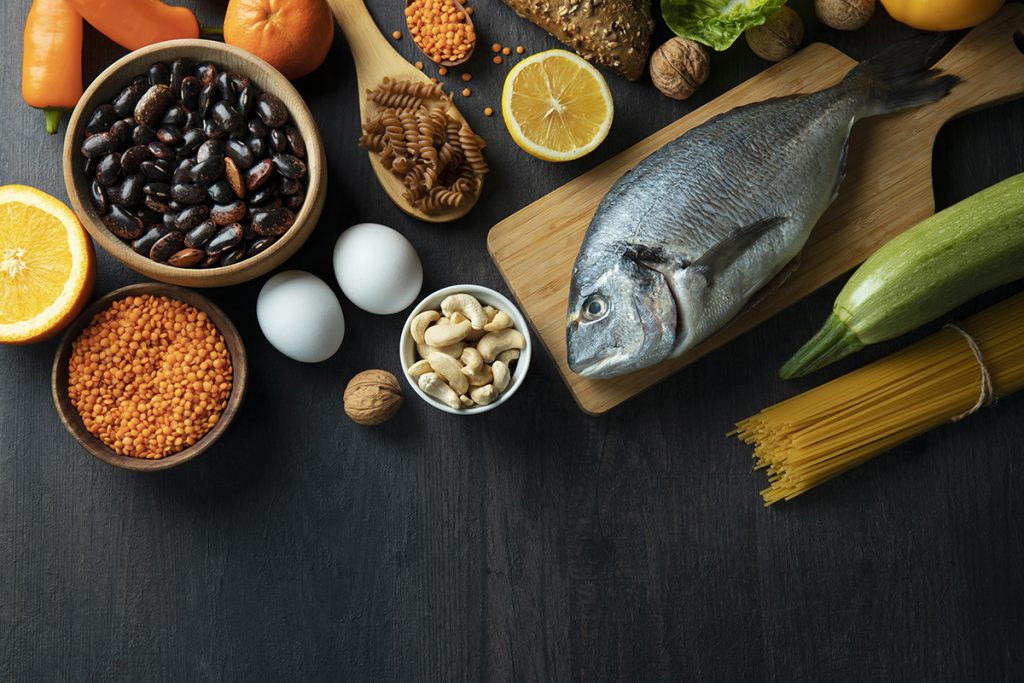This is what you need to eat to live longer

Learn how diet can prolong your lifespan and maintain optimal eating habits from two nutrition experts. They offer insights into eating habits conducive to healthy aging.
You may have planned to adopt a healthy diet in 2024, but perhaps those intentions have already fallen by the wayside, like an empty bag of chips. However, embracing nutritious foods can significantly make you live longer.
According to the Dutch VU nutrition scientist Jaap Seidell, adopting a healthy diet can add up to eight years of healthy living. Dutch aging expert Andrea Maier suggests an even greater potential: starting healthy eating habits at twenty could extend lifespan by up to thirteen years.

The Wheel of Five
What foods promote to live longer, and what should you avoid? Both experts offer concise advice. According to Maier, prioritize plant-based foods like vegetables, legumes, and nuts, while minimizing red and processed meats, and limiting white meat.
Seidell emphasizes the importance of following the Wheel of Five recommendations, which advocate for ample servings of vegetables, fruits, and whole grains, while reducing intake of processed foods and sugary beverages.
While Maier mentions the Food4HealthyLife app as a useful tool, Seidell expresses skepticism about its accuracy, particularly regarding its claim that consuming 25 grams of nuts daily is a good way to live longer.
Eating healthy is not boring
People often find following the Wheel of Five dull, Seidell acknowledges, including those in politics. They perceive it as depriving them of enjoyment in life. However, Seidell counters this notion with a straightforward yet persuasive response:
When asked about their most enjoyable meals, many recall dishes from vacations in Greece or Italian villages—meals rich in healthy ingredients like olive oil, vegetables, fresh fish, and fruits. This challenges the misconception that healthy eating is bland and unappealing.

Know your body
Maier emphasizes the importance of self-awareness beyond general nutrition guidelines. Tracking calorie intake and understanding body composition are key to be able to live longer. Utilizing smartphones or smartwatches can help monitor daily exercise and calorie expenditure.
It’s a simple equation: consuming more calories than you burn leads to weight gain. Therefore, keeping a food diary is crucial, as people often overlook snacks or sugary beverages.
Despite reluctance, Maier advises monthly weigh-ins to track weight changes and adjust eating habits accordingly. For a more comprehensive understanding, specialized scales measuring fat and muscle mass are recommended, though they may lack precision.
Gyms often offer these scales, providing a rough estimate of body composition. To reduce fat mass, calorie intake should be limited, while protein-rich diets and strength training are recommended for muscle gain.
Unhealthy impulses
Now that you’re aware of what to eat, how do you stay committed? Seidell advises guarding against unhealthy impulses, which often arise in tempting situations like train stations or receptions. Vending machines and supermarkets brim with tempting snacks, making it essential to carry nutritious options to avoid succumbing to unplanned indulgences.
Additionally, Seidell cautions against shopping on an empty stomach, as hunger prompts impulse purchases of convenient yet unhealthy items. To counteract this, he recommends making a shopping list in advance and planning meals for the upcoming days.
By preparing ahead, it becomes easier to adhere to healthy intentions. Ultimately, maintaining a nutritious diet which makes you live longer boils down to effective planning.

Planetary and vegetable
Does plant-based eating contribute to be able to live longer? The Health Council recommended shifting from animal proteins to plant-based ones for both health and sustainability reasons.
Veganism can indeed promote health, but it hinges on your food choices, notes Seidell. A diet solely consisting of Coca-Cola, sweets, and white bread, while plant-based, is not nutritious. Optimal health can be achieved through a diet rich in beans, vegetables, fruits, nuts, and mushrooms, even without meat.
However, caution is warranted with strict veganism. Animal products are crucial sources of vitamin B12, and the iron in vegetables and fruits is less easily absorbed by the body. Seidell advises reducing animal product intake but not necessarily adhering strictly to veganism for optimal nutrition.
Intermittent fasting to live longer
In addition to food choices, meal timing also plays a role in health. Intermittent fasting, gaining popularity, involves alternating between eating and fasting periods. Maier explains the common practice of fasting for 16 hours and eating within an 8-hour window, noting her unintentional lifelong adherence due to skipping breakfast.
The concept rests on allowing the body time for maintenance tasks, such as cell repair, which can be hindered by continuous eating. Research suggests potential benefits for individuals with health conditions like heart failure, and studies on mice indicate longevity benefits. However, it remains unclear whether intermittent fasting makes it possible to live longer universally.




















